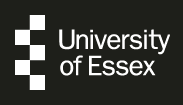Server error
Well, this is embarrassing. One of our web servers has hit a problem and doesn't know what to do. Don't worry, it's not your fault.
Please try again. If you still see this error message, it would be really helpful if you contacted our IT Helpdesk to make sure we know there's a problem.
Error code: 500 (server error)

